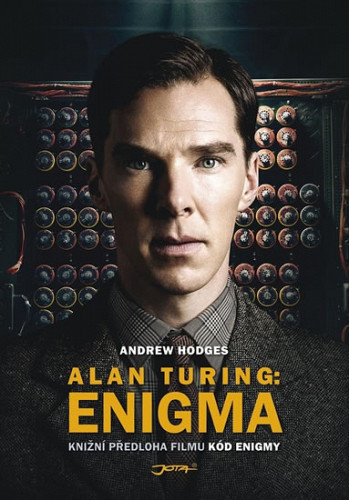
Order from Amazon: the UK paperback edition | UK Kindle edition | US paperback edition | US Kindle edition. The cover picture relates to a (non-documentary) American-produced film which appeared in 2014. The new British edition is from Vintage, Random House, London, and the new American edition is from Princeton University Press.These new editions are virtually identical with a new 2014 Preface, and a Foreword by Douglas Hofstadter.The main text and notes are the same as in previous editions, but, mercifully, re-set in a larger typeface which makes it much easier to read than the earlier paperback editions. The 20 editions New editions of Alan Turing: The Enigma, both British and American, appeared in 2014. Kindle, hard cover, and audio editions also available at this link.Alan Turing: The Enigma Notes by the author, Andrew Hodges Home Page | Site Map | Contact and FAQ –Mary Ellen Curtin –This text refers to an out of print or unavailable edition of this title. At every stage his life raised questions about the connection (or lack of it) between the mind and the body, thought and action, intelligence and operations, science and society, the individual and history.Īnd Hodges admits what all biographers know, but few admit, about their subjects: “His inner code remains unbroken.” Alan Turing is still an enigma. In this sense his life belied his work, for it could not be contained by the discrete state machine. Hodges has the mathematical knowledge to explain the intellectual significance of Turing’s work, while never losing sight of the human and social picture:

And Turing died because his identity as a homosexual was incompatible with cold-war ideas of security, implemented with machines and remorseless logic: “It was his own invention, and it killed the goose that laid the golden eggs.”Andrew Hodges’s remarkable insight weaves Turing’s mathematical and computer work with his personal life to produce one of the best biographies of our time, and the basis of the Derek Jacobi movie Breaking the Code. His work cracking the German’s Enigma machine code was, in many ways, the first triumph of computer science. A pure mathematician from a tradition that prided itself on its impracticality, Turing laid the foundations for modern computer science, writes Andrew Hodges: Alan had proved that there was no “miraculous machine” that could solve all mathematical problems, but in the process he had discovered something almost equally miraculous, the idea of a universal machine that could take over the work of anymachine.During World War II, Turing was the intellectual star of Bletchley Park, the secret British cryptography unit. Alan Turing died in 1954, but the themes of his life epitomize the turn of the millennium.


 0 kommentar(er)
0 kommentar(er)
